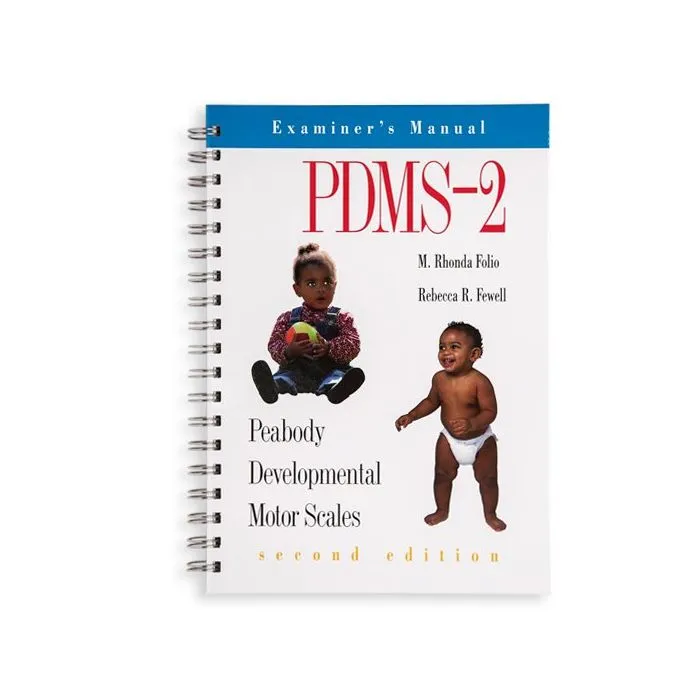(PDMS-2) Peabody Developmental Motor Scales, Second Edition
(PDMS-2) Peabody Developmental Motor Scales, Second Edition
From $46.00
To $153.00
In stock
Sign In to download sample materials.
Don't have an account? Register Here.
About This Product

Peabody Developmental Motor Scales, Third Edition (PDMS-3) is now available!
Safety Warning CHOKING HAZARD - Small parts. Supervision is required for children under 3 years.
BY M. RHONDA FOLIO AND REBECCA R. FEWELL
The PDMS-2 not only assesses gross and fine motor skills in young children but also provides a convenient remediation program.
Designed to evaluate children from birth through age 5, the PDMS-2 is composed of six subtests that assess related motor abilities that develop early in life:
- Reflexes
- Stationary (body control and equilibrium)
- Locomotion
- Object Manipulation
- Grasping
- Visual–Motor Integration
Results from these subtests are used to generate the three composite scores: Gross Motor Quotient, Fine Motor Quotient, and Total Motor Quotient. Scores are presented as percentiles, standard scores, and age equivalents. Norms, based on a nationally representative sample of more than 2,000 children, are stratified by age.
The test can be individually administered in 45 to 60 minutes. A Guide to Item Administration provides explicit, illustrated instructions for each item.
Once you have evaluated the child, you can use the PDMS-2 Motor Activity Program to plan individualized intervention. This spiral-bound book contains concrete, practical suggestions for helping the child acquire fine and gross motor skills. It is highly useful in identifying goals, objectives, and activities for inclusion in IEP and IFSP plans.
The PDMS-2 can be used to estimate a child’s overall motor competence relative to peers, or to evaluate his or her fine versus gross motor abilities. The test is useful in educational therapy because it assesses both qualitative and quantitative aspects of the child’s motor performance. The quantitative information generated by the PDMS-2 is helpful in monitoring the child’s progress during remediation.












